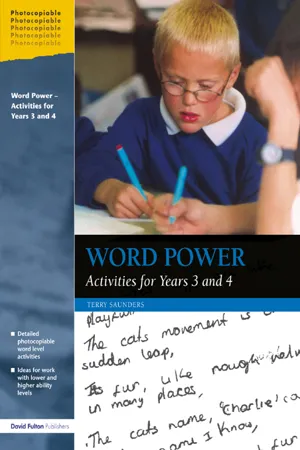
This is a test
- 80 pages
- English
- ePUB (mobile friendly)
- Available on iOS & Android
eBook - ePub
Book details
Book preview
Table of contents
Citations
About This Book
These engaging activities focus upon the word level strand of the literacy stategy, in particular the vocabulary extention element.
Frequently asked questions
At the moment all of our mobile-responsive ePub books are available to download via the app. Most of our PDFs are also available to download and we're working on making the final remaining ones downloadable now. Learn more here.
Both plans give you full access to the library and all of Perlego’s features. The only differences are the price and subscription period: With the annual plan you’ll save around 30% compared to 12 months on the monthly plan.
We are an online textbook subscription service, where you can get access to an entire online library for less than the price of a single book per month. With over 1 million books across 1000+ topics, we’ve got you covered! Learn more here.
Look out for the read-aloud symbol on your next book to see if you can listen to it. The read-aloud tool reads text aloud for you, highlighting the text as it is being read. You can pause it, speed it up and slow it down. Learn more here.
Yes, you can access Word Power by Terry Saunders in PDF and/or ePUB format, as well as other popular books in Didattica & Didattica generale. We have over one million books available in our catalogue for you to explore.
Information

Guidelines for teachers
Introducing synonyms
Did you know that there are more than 15 ways of saying delicious, at least 20 words that can be used instead of fantastic and around 30 synonyms for brilliant? The incredible richness of our language, drawn from a vast number of sources, gives us the opportunity to interpret and communicate our feelings and ideas in our own ways, to personalise experiences, descriptions and actions and to give detail, expression and accuracy to our written and spoken language. Exploring the intriguing world of synonyms is one of the most valuable, and exciting, ways that we can help children to expand and extend their language skills. It gives them freedom to make their own choices – and the chance to voice their true feelings and thoughts.
In the classroom – starter activities
Challenge the children to be on the constant lookout for synonyms in their talking and writing. Create word walls containing well-known words and encourage the children to surround each one with as many synonyms as they can find. Alternatively choose a word of the week and encourage everyone – children, teaching assistants, parents – to come up with as many synonyms as possible. Make a synonym human crocodile. Choose a word with plenty of synonyms and ask the children to call out a synonym for it. If they are correct, they join the human crocodile as it winds around the classroom. Which word provides the longest line? Encourage the children to find out the meaning of the word synonym. They should start by looking up the origin and meaning of the root word syn. How many other words can they find which also come from syn? Here are some to start you off – synonymous, synergy, synchronise. Make sure that all children have easy access to a good thesaurus for this chapter.
Definition: What is a synonym?
A synonym is a word which has the same or similar meaning to other words.
Why are synonyms important to our written and spoken language?
They:
• add variety, interest and detail
• enable us to communicate specific ideas, thoughts, descriptions and feelings
• prevent repetition and overuse of common vocabulary.
National Literacy Strategy – Years 3/4
The National Literacy Strategy underlines the importance of synonyms by including them in the vocabulary extension requirements for almost every term during Years 3 and 4. This builds on the foundation work from Year 2 and prepares children for Years 5 and 6 ahead. Synonyms are specifically mentioned at: Year 3, Term 1; Year 3, Term 3; Year 4, Term 1; Year 4, Term 2.

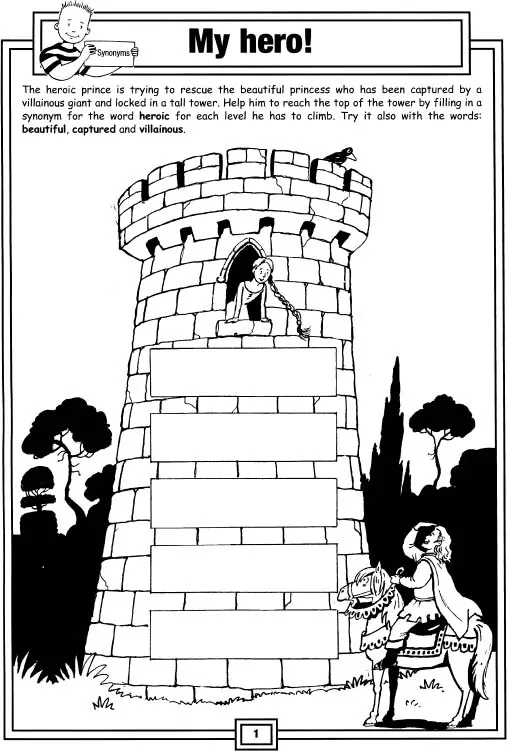
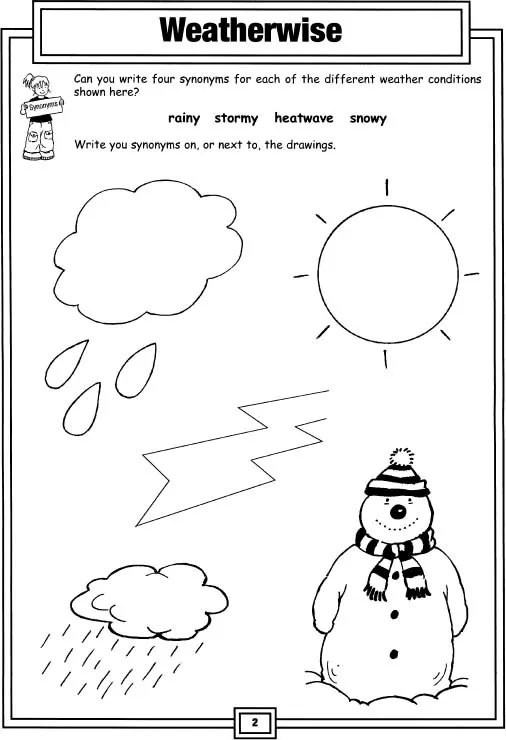
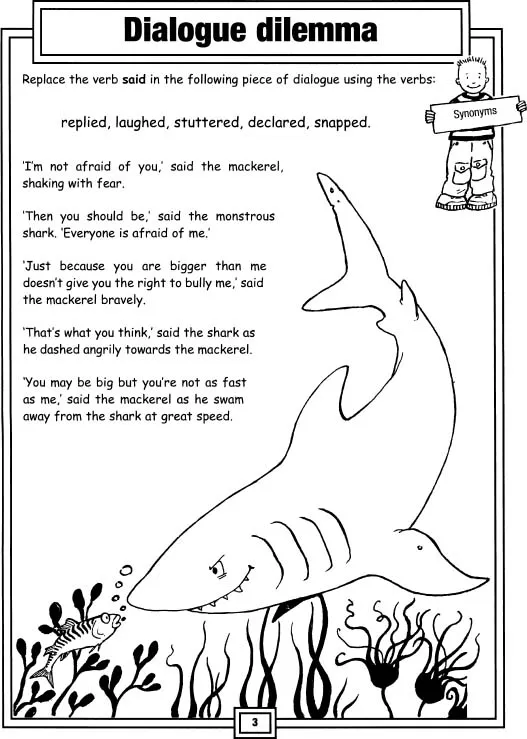
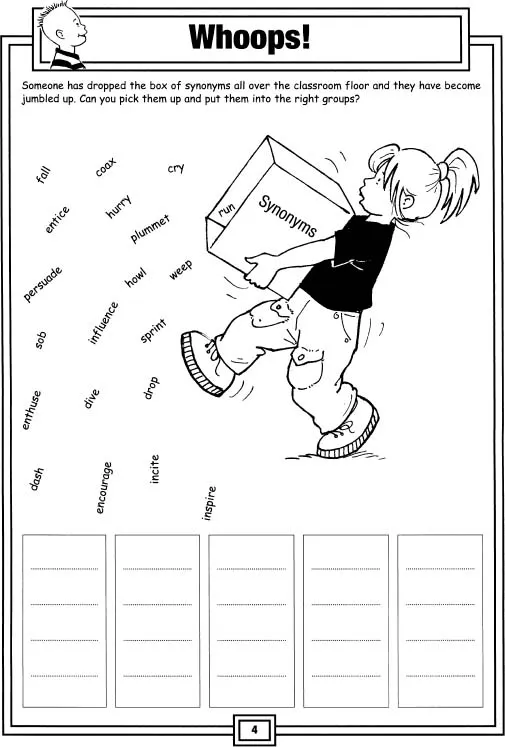
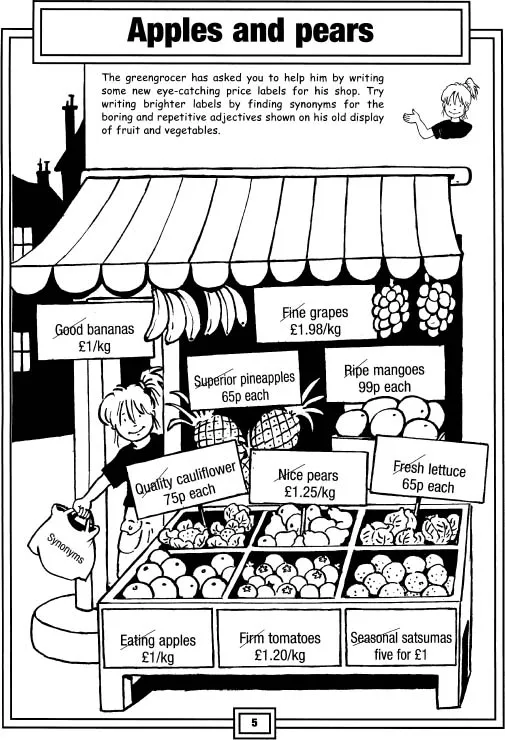
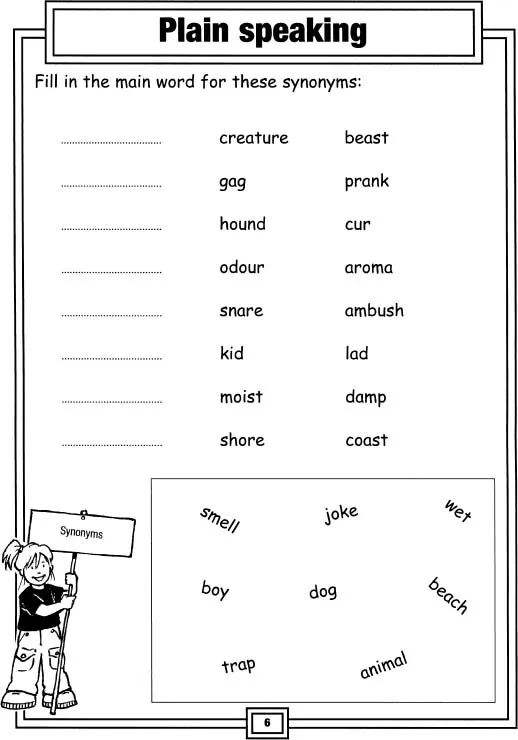
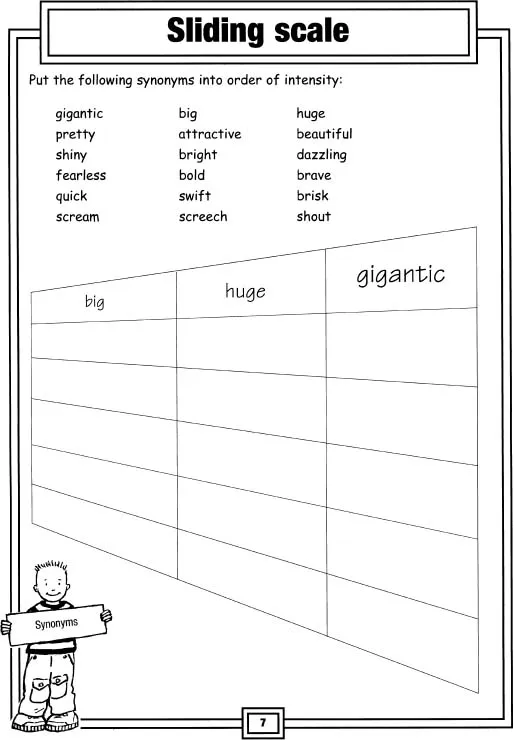
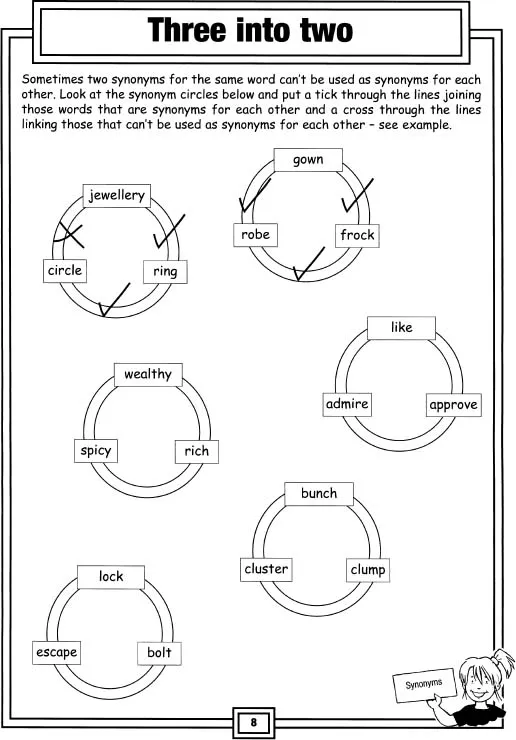
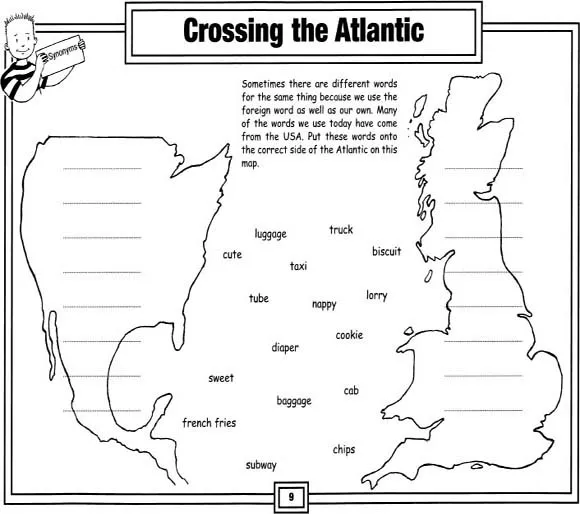
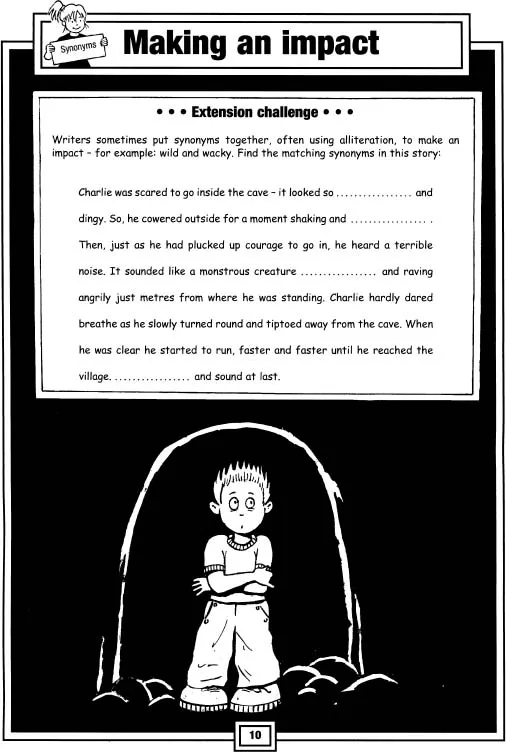

Guidelines for teachers
Introducing antonyms
If synonyms give variety to our language, antonyms provide the context. Almost everything in our universe has an opposite – making sense of how and why we live, maintaining a balance and a structure and establishing both rhythm and contrast. Through the myths, legends and stories that have been passed down through generations and across cultures, we know that even our earliest ancestors recognised and revered this crucial element in our lives. And it is through stories, poems and rhymes that children quickly become aware of, and begin to deal confidently with, some of the most basic and elemental antonyms, such as up and down, good and bad, light and dark.
In the classroom – starter activities
Talk about opposites with the children, highlighting the fact that almost everything has an opposite – emotions, movements, descriptions. Introduce them to the word antonym and then brainstorm some of the best-known examples with them. Discuss phrases like ‘opposites attract’ and show how poets and writers frequently use opposites to create interesting and memorable lines. Remind them that even nursery rhymes – such as the ‘Grand Old Duke of York’ – and many ...
Table of contents
- Cover
- Title
- Copyright
- Contents
- Preface
- How to use this book
- 1 Synonyms – adding variety, interest and detail
- 2 Antonyms – providing contrast and balance
- 3 Homonyms – sorting out the correct meaning
- 4 Rhyming words – introducing humour, fun and fascination
- 5 Prefixes and suffixes – extending and updating
- 6 Compound words – bringing words together
- Answers for activities for Years 3 and 4